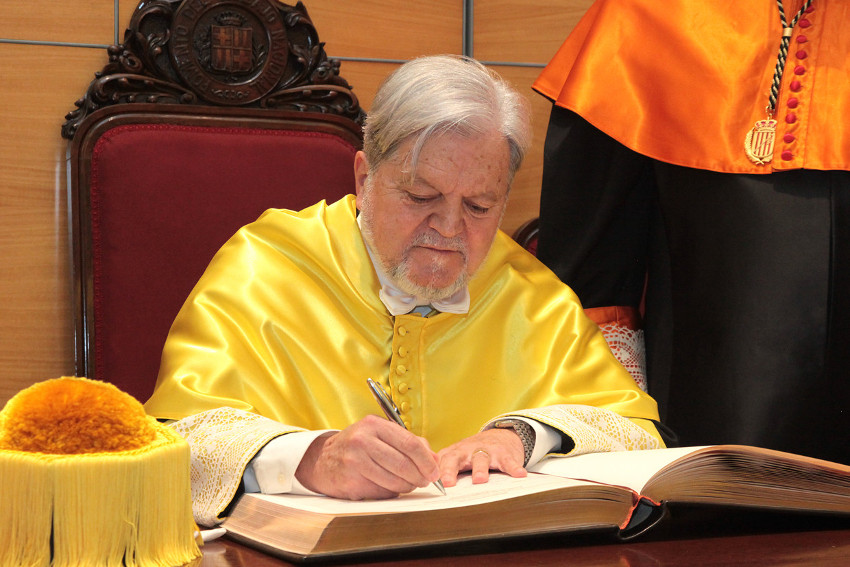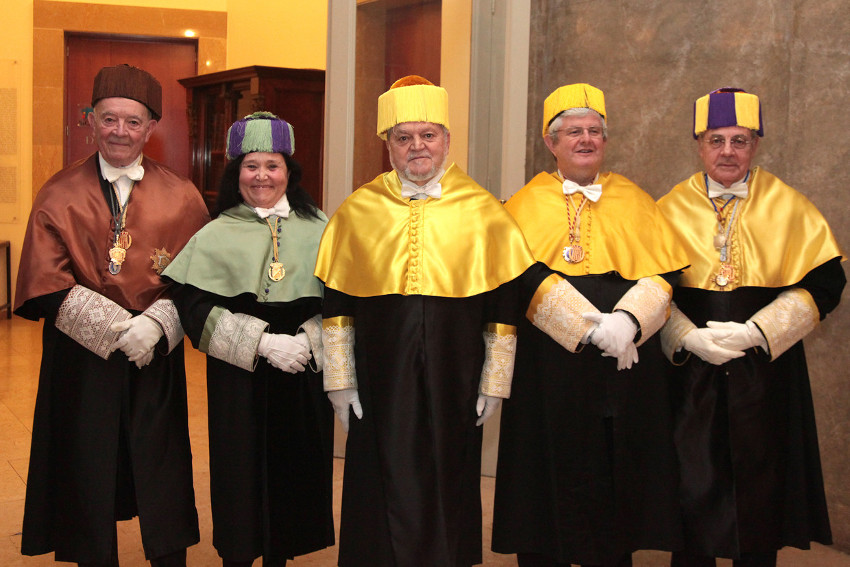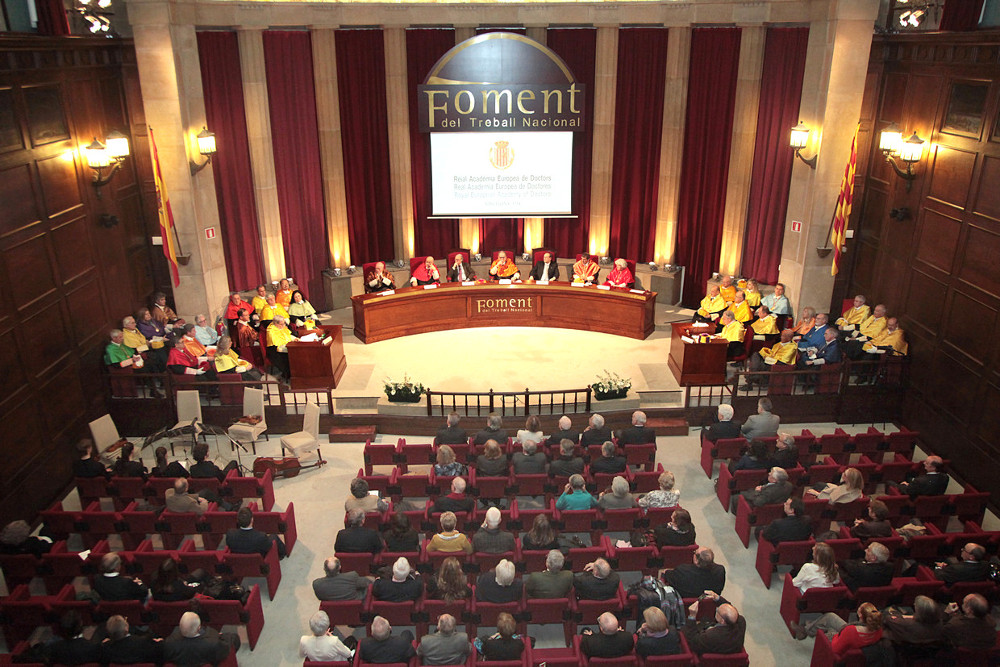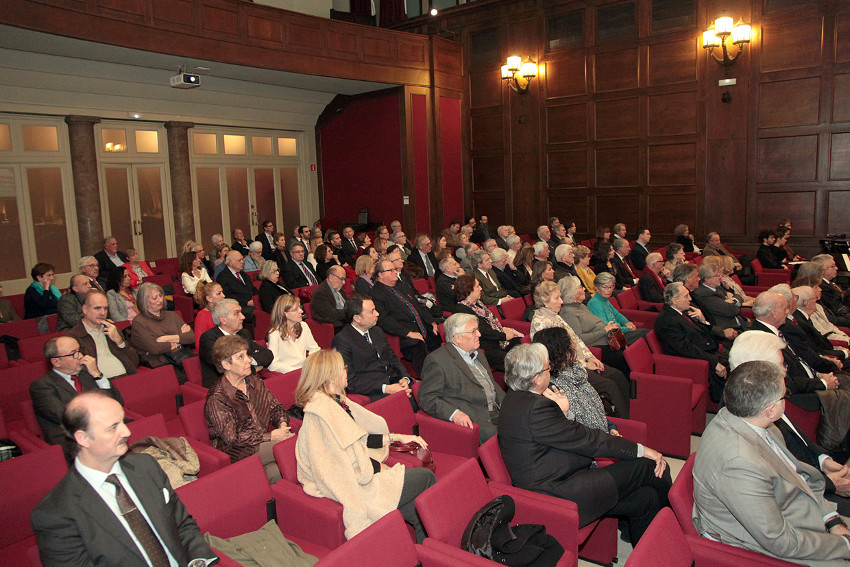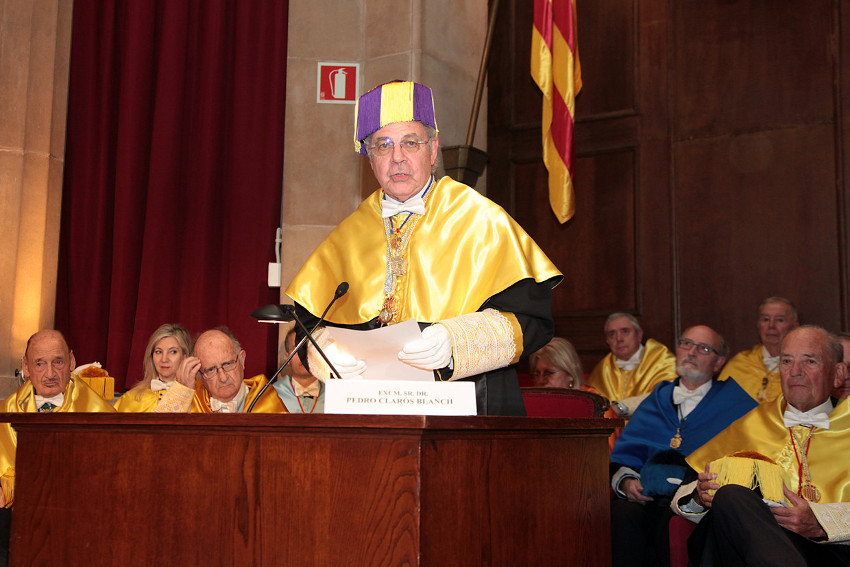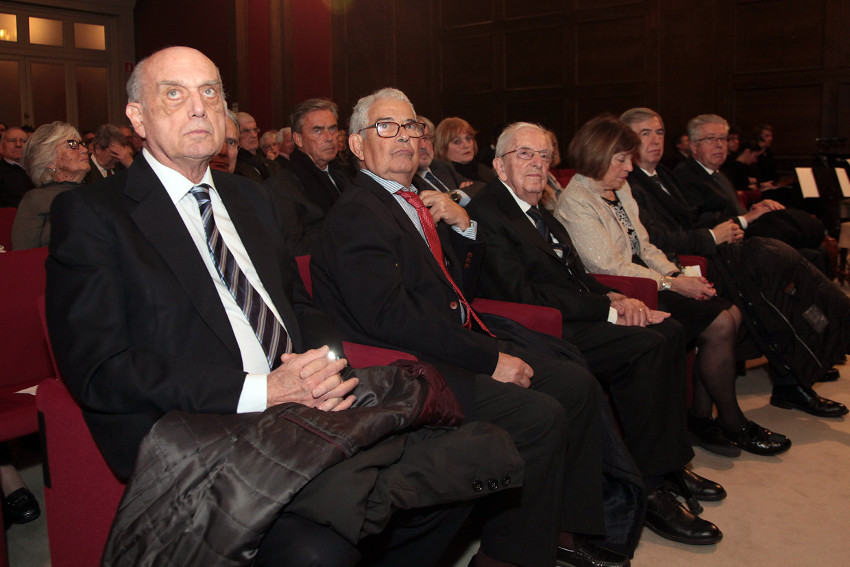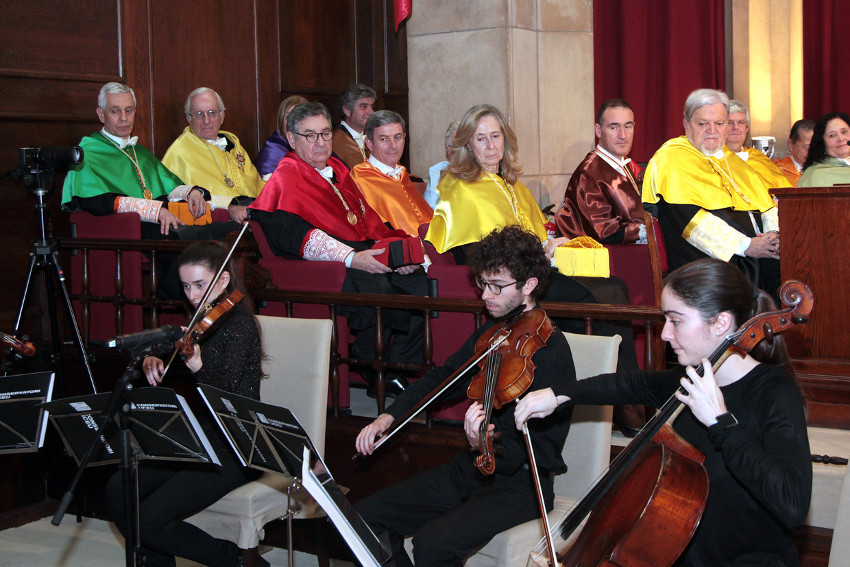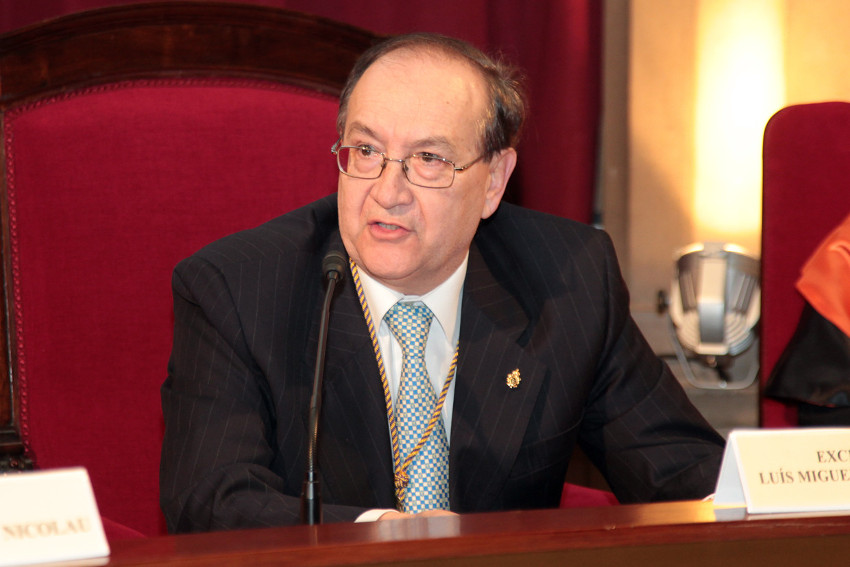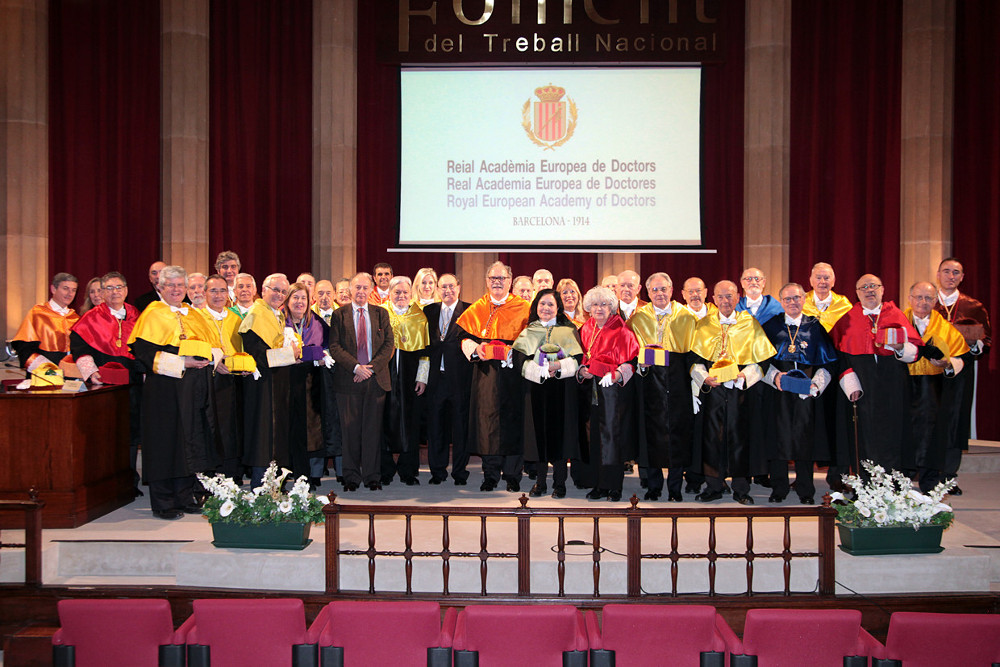Joaquín Callabed, president of the Spanish Social Paediatrics Club, enters at the Royal European Academy of Doctors
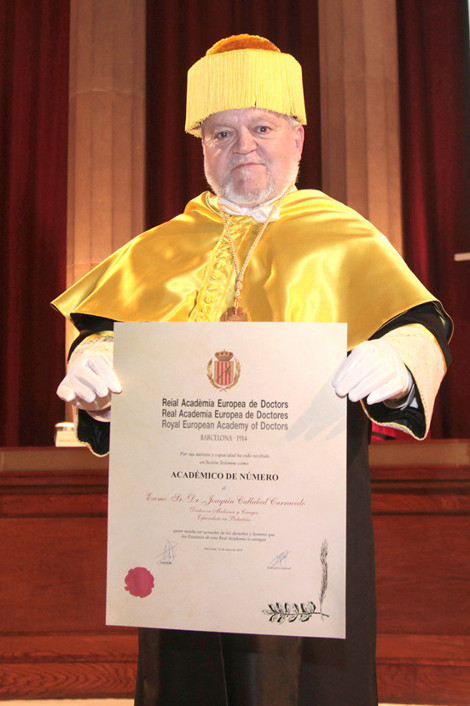 Joaquín Callabed, doctor of Medicine and Surgery and president of the Spanish Club of Social Paediatrics, entered as full academician of the Royal European Academy of Doctors-Barcelona 1914 (RAED) during a ceremony held on Wednesday, January 16, at the Catalan labour Promotion of National Work, headquarters of the RAED. The recipient read the admission speech “Una mirada a Santiago Ramón y Cajal en su perfil humano y humanista” (A look at Santiago Ramón y Cajal in his human and humanist profile). Full academician and vice-president Pedro Clarós answered on behalf of the Royal Corporation.
Joaquín Callabed, doctor of Medicine and Surgery and president of the Spanish Club of Social Paediatrics, entered as full academician of the Royal European Academy of Doctors-Barcelona 1914 (RAED) during a ceremony held on Wednesday, January 16, at the Catalan labour Promotion of National Work, headquarters of the RAED. The recipient read the admission speech “Una mirada a Santiago Ramón y Cajal en su perfil humano y humanista” (A look at Santiago Ramón y Cajal in his human and humanist profile). Full academician and vice-president Pedro Clarós answered on behalf of the Royal Corporation.
In his work, the new academician reviews exhaustively the figure and work of this winner of the Nobel Prize in Physiology and Medicine, from his childhood and adolescence in High Aragon, his bachelor’s degree in Huesca and his medical studies in Zaragoza to his university chairs, first in Valencia and then in Barcelona, where he would begin an exciting career as a researcher that would culminate in the Spanish National Institute of Hygiene and in the Laboratory of Biological Research of the University of Madrid. His studies led him to the Nobel Prize in 1906. Callabed, likewise, reviews the lesser-known Ramón y Cajal, passionate about drawing, painting and photography, as well as his literary work.
 The study focuses on the influence of this renowned scientist on the social and historical context of the period in which he lived, as well as the advances in the different fields of medicine that he helped to develop. He was also the first internationally recognized Spanish scientist who opened himself up to the main international forums and helped to bring Spain out of endemic isolation.
The study focuses on the influence of this renowned scientist on the social and historical context of the period in which he lived, as well as the advances in the different fields of medicine that he helped to develop. He was also the first internationally recognized Spanish scientist who opened himself up to the main international forums and helped to bring Spain out of endemic isolation.
Callabed finishes his reflection by lamenting the gaps that still exist on a decisive figure in medicine. From Ramón y Cajal, the author points out, neither his complete works nor his systematic correspondence have been published. Nor are there critical editions of his most important texts or monographic analyses on the central themes of his production. “You have to study more and less mythologize the wise Cajal”, concludes Callabed.
Admission speech
- Dr. Luis Miguel Tobajas

